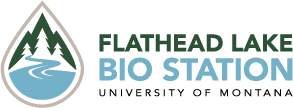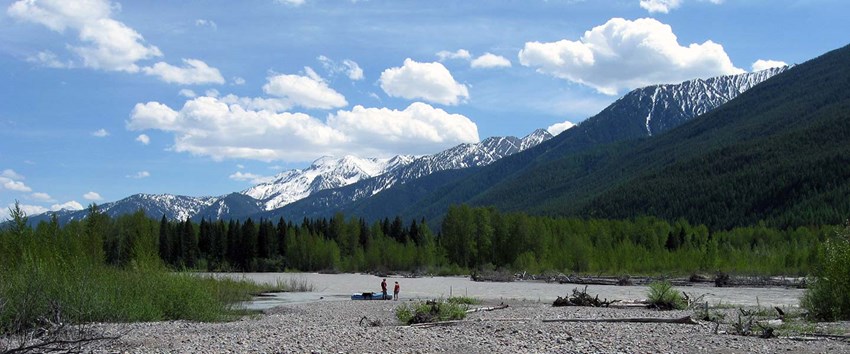Robert Hall’s River Ecosystem Ecology Laboratory, at the University of Montana and the Flathead Lake Biological Station seeks to fill two postdoctoral research associate positions as part of a large project to develop and compete computational, statistical, and machine learning methods for multi-dimensional data to create predictive and explanatory models for the life sciences. These positions will focus on material and energy flux in aquatic ecosystems.
The postdoctoral researchers will be primarily based at Flathead Lake Bio Station but will benefit from the opportunities to collaborate broadly. The positions allow for multiple professional development opportunities, including training in highly interdisciplinary science, collaborations across institutions, regular meetings with the entire consortium, mentorship toward academic and non-academic career development, and interactions with graduate and undergraduate students. The postdoctoral associate is expected to publish these findings in journals and work collaboratively with FLBS scientific staff and collaborators at other institutions.
The University of Montana is an Affirmative Action/Equal Opportunity employer and has a strong institutional commitment to the principle of diversity in all areas. In that spirit, we are particularly interested in receiving applications from a broad spectrum of qualified people who would assist the University in demonstrating its five priorities for action: Place student success at the center of all we do; drive excellence and innovation in teaching, learning, and research; embody the principle of “mission first, people always"; partner with place; and proudly tell the UM story.
Position Details
- Position is full-time, 1.0 FTE, Letter of Appointment and includes a comprehensive and competitive benefits package including Insurance package, mandatory retirement plan, partial tuition waiver, and wellness program.
- Salary for this position is $47,000 - $52,000 per year, commensurate with qualifications.
Required qualifications
- Ph.D. in ecosystem ecology, evolutionary biology, earth or environmental science, statistics, computer science, mathematics, complex systems science, or a related field.
Preferred Qualifications
- Strong background in mathematical or statistical modeling (including machine learning), computer programming, scientific and high-performance computing, analysis of large datasets, or some combination thereof, particularly as applied to life sciences. Alternatively, a keen interest in developing these skills to extend strong conceptual thinking and research in life sciences
- Previous interdisciplinary and collaborative work, in addition to project leadership
- Record of publishing in peer-reviewed literature
- Excellent verbal and written communication skills
- Experience examining material and energy flux in aquatic ecosystems
- Interest in working with a diverse team across disciplinary boundaries
About the Flathead Biological Station, and UM
The Flathead Lake Biological Station is a field research and teaching facility designated as a Center of Excellence of the University of Montana. The mission of the Bio Station is to conduct basic and applied research in ecology with an emphasis on freshwater; provide field ecology courses for college students, K-12 teachers and natural resource professionals; train graduate students for professional or teaching careers; and, provide scientific data, interpretation and outreach to help resolve environmental problems and inform public policy locally, regionally, nationally and internationally. The faculty and staff also generate and maintain natural resource databases used by the public and resource management agencies in addition to supporting the research program at the Bio Station.
UM is an Affirmative Action/Equal Opportunity employer and has a strong institutional commitment to the principle of diversity in all areas. In that spirit, we are particularly interested in receiving applications from a broad spectrum of qualified people who would assist the University in demonstrating its five priorities for action: Place student success at the center of all we do; drive excellence and innovation in teaching, learning, and research; embody the principle of “mission first, people always"; partner with place; and proudly tell the UM story.
For more information, view the full position posting.


